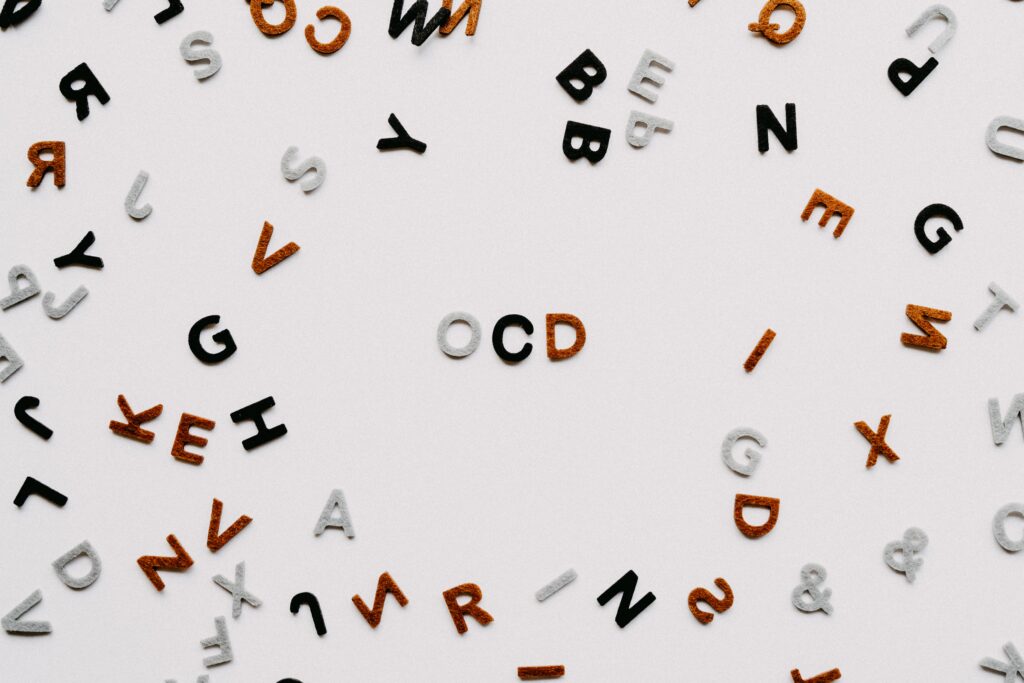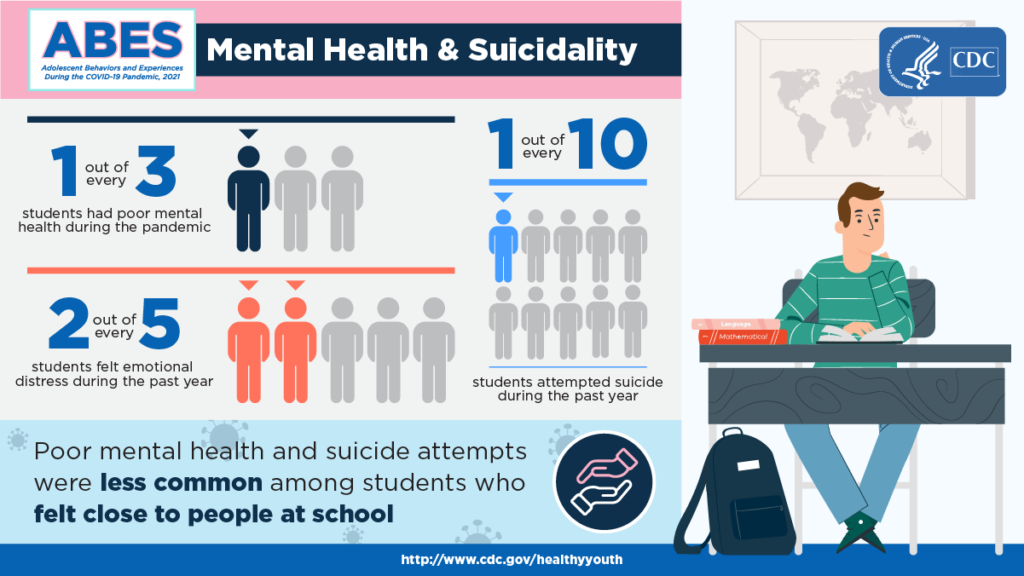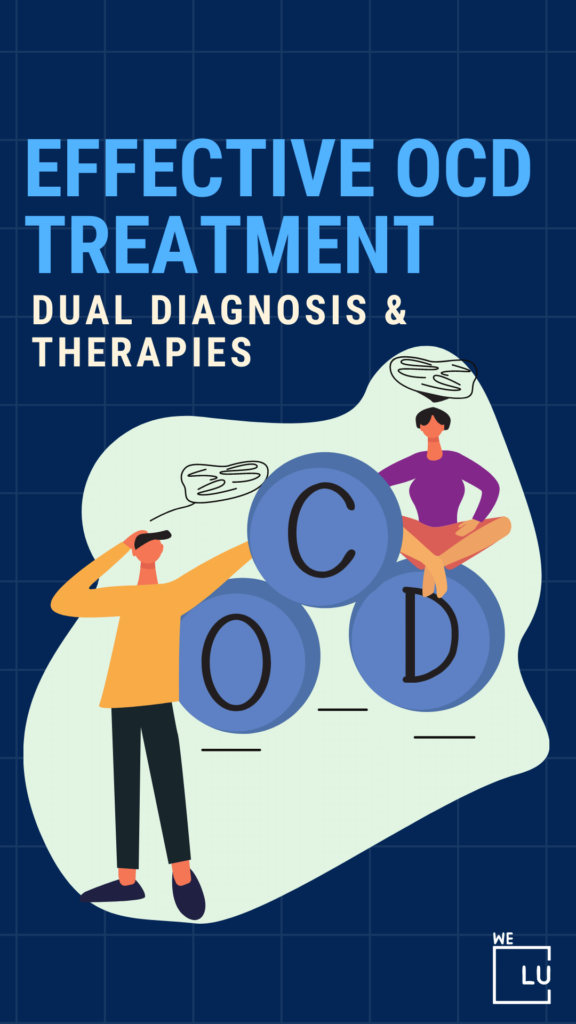Are There Different Types Of OCD?
Although symptoms of OCD are shared across all its forms, the way they manifest in daily life can vary greatly from person to person. Ultimately, the specific content of obsessions is not crucial, but it holds significant importance.
A person’s subtype simply represents the unique way in which OCD affects them. It revolves around the focus of their mind and the resulting thoughts. While subtypes generally remain stable over time, new symptoms may emerge while old ones may fade.
OCD is considered heterogeneous by clinicians, as it exhibits considerable variation from one individual to another. Although there is ongoing debate regarding the specific clusters of symptoms associated with OCD, certain common patterns have been identified. These symptom clusters are often discussed as potential subtypes, representing recurring obsessions and compulsions experienced by individuals with OCD.
Clinicians often refrain from emphasizing subtypes due to the lack of extensive research supporting them. Moreover, since subtypes are imperfect categories, investing excessive time in determining one’s specific subtype is generally not necessary. Nevertheless, for many individuals with OCD, the immediate recognition of their own experiences within a list of subtypes can be a comforting and empowering starting point in the treatment process.
Imagine having considered yourself uniquely burdened for a significant period. Suddenly, you come across a list of symptoms that perfectly match your own. Identifying with a specific subtype eliminates the feeling of solitude in your struggles. You no longer feel hopeless as it becomes apparent that others have faced similar challenges.
Even after experiencing this profound relief and embarking on the arduous treatment journey, knowing that others are grappling with similar obsessions and compulsions remains beneficial. The key for individuals seeking improvement is never to feel isolated. Although listing subtypes is an imperfect approach, it serves the purpose of connecting people, as it underscores that these subtypes are not distinct conditions but shared manifestations of the same disorder.
Lastly, subtypes have become integral to the global community of individuals dealing with OCD. People have become aware of subtypes and seek to understand how this condition can manifest. Therefore, let us explore some of these OCD types in greater detail.

Skip To:
Learn More:
- Obsessive Compulsive Personality Disorder & OCD
- DBT Therapy, Conditions to Treat, The 5 Functions of DBT, Benefits & Mental Health Treatment
- What are Obsessive Thoughts? Their Connection With OCD
- CBT Therapy for Mental Health Disorders, Process, Efficacy, Techniques, Types & CBT for Co-Occurring Disorders
- Co-occurring disorders, Diagnosis, Risk Factors, Mental Health, Substance Abuse & Dual Diagnosis Rehab Washington
- We Level Up WA Mental Health Center
- How to help someone with Drug Addiction and Depression, Dual Diagnosis Rehab Washington
- 25 Signs of Narcissistic Parents
OCD Facts
OCD Overview
Obsessions with excessive ideas trigger recurrent behaviors (compulsions). Unreasonable worries and obsessions (compulsive behaviors) are hallmarks of obsessive-compulsive disorder.
OCD frequently centers on ideas like a dread of germs or the requirement to organize objects in a certain way. Symptoms typically appear gradually and change over time. Both conversation therapy and medication are used as treatments.
OCD Symptoms
- Behavioral: compulsive behavior, agitation, compulsive hoarding, hypervigilance, impulsivity, meaningless repetition of own words, repetitive movements, ritualistic behavior, social isolation, or persistent repetition of words or actions.
- Mood: anxiety, apprehension, guilt, or panic attack.
- Whole body: fatigue or sweating.
- Also common: food aversion, nightmares, or rumination.
OCD Treatments
- Support group: A place where those pursuing the same disease or objective, such as weight loss or depression, can receive counseling and exchange experiences.
- Cognitive behavioral therapy: A conversation treatment that aims to change the negative attitudes, actions, and feelings connected to psychiatric discomfort.
- Counseling psychology: A subfield of psychology that handles issues with the self that are connected to work, school, family, and social life.
- Anger management: To reduce destructive emotional outbursts, practice mindfulness, coping skills, and trigger avoidance.
- Psychoeducation: Mental health education that also helps individuals feel supported, validated, and empowered
- Family therapy: psychological counseling that improves family communication and conflict resolution.
End the Emotional Pain. Get Your Life Back.
Feeling Depressed, Anxious or Struggling with Mental Health Illness? Get Safe Comfortable Mental Health Dual Diagnosis High-Quality Therapy From Counselors That Care. Begin Your Recovery Now.
Hotline: (509) 348-4077

OCD Statistics
Obsessive-compulsive disorder, or OCD, is a term that is frequently used in casual conversation. For those who have obtained a clinical diagnosis, OCD is frequently perceived as an unusual trait rather than a severe mental health difficulty. It is frequently used to characterize picky behavior or is mildly neurotic in the public eye.
2.5 million
OCD affects 2.5 million adults, or 1.2% of the U.S. population.
Source: National Institute on Mental Health
3x
Women are 3x more likely to be affected than men.
Source: ADAA
25%
The average age of onset is 19, with 25% of cases occurring by age 14. One-third of affected adults first experienced symptoms in childhood.
Source: ADAA
Get Help. Get Better. Get Your Life Back.
Searching for Accredited Dual Diagnosis Mental Health Centers Near You?
Even if therapy failed previously, or are in the middle of a difficult crisis, we stand ready to support you. Our trusted behavioral health specialists will not give up on you. When you feel ready or just want someone to speak to about counseling alternatives to change your life call us. Even if we cannot assist you, we will lead you to wherever you can get support. There is no obligation. Call our hotline today.
FREE 24/7 Dual Diagnosis Mental Health Services Hotline
What Are The 4 Types Of OCD?
1. Harm OCD
Harm OCD is one of the several different OCD types, encompassing various OCD subtypes within the broader spectrum of the disorder. Within this complex landscape, Harm OCD stands out as a distinctive subtype or what is commonly referred to as an “OCD type.” It revolves around a specific theme of obsessions and corresponding compulsions, which distinguishes it from other manifestations of OCD.
Individuals with Harm OCD experience intrusive thoughts that are distressing, graphic, and often centered on the fear of causing harm to themselves or others. These intrusive thoughts may involve vivid and disturbing images or scenarios of violent acts. However, it is crucial to emphasize that having Harm OCD does not indicate any genuine desire or intention to engage in harmful behaviors.
The obsessions in Harm OCD typically revolve around fears of accidental harm, being responsible for tragic events, or losing control and acting violently. These intrusive thoughts can be deeply disturbing and trigger intense anxiety and distress. Individuals with Harm OCD often grapple with overwhelming guilt, shame, and doubt regarding their thoughts, further amplifying their fear and uncertainty.
To cope with the distressing obsessions, individuals with Harm OCD develop compulsive behaviors or mental rituals. These compulsions are performed to prevent or neutralize the feared harm, seek reassurance, or temporarily reduce anxiety. Common compulsions may include repetitive checking, seeking constant validation from others, avoiding triggers, and engaging in mental reviewing or analyzing.
2. SO-OCD
SO-OCD, also known as Relationship OCD or Relationship-focused OCD, is one of the distinct types of OCD disorders within the broader spectrum of obsessive-compulsive disorder. Obsessive thoughts and doubts about romantic or interpersonal relationships characterize it. These obsessions in SO-OCD can lead to significant distress and anxiety, affecting individuals’ ability to engage in healthy and fulfilling relationships.
Within the classification of OCD, SO-OCD is recognized as one of the four types of OCD. Each type represents a specific theme of obsessions and compulsions that individuals experience. In the case of SO-OCD, the focus is primarily on relationship-related concerns. The other three types of OCD include Contamination OCD, Symmetry/Ordering OCD, and Harm OCD.
Individuals with SO-OCD often experience intrusive thoughts and doubts about their relationships. They may constantly question the authenticity of their feelings, their compatibility with their partner or have persistent doubts about their partner’s trustworthiness or loyalty. These thoughts can be relentless and cause intense anxiety, leading individuals to seek reassurance or temporarily engage in compulsive behaviors to alleviate their doubts.
Compulsions in SO-OCD may manifest as excessive checking of text messages, social media activities, or relationship-related information, seeking constant reassurance from their partner, or constantly analyzing and ruminating over past interactions or events. These compulsive behaviors reduce the anxiety and uncertainty associated with the obsessions.
3. POCD
POCD, or Pedophilic Obsessive-Compulsive Disorder, is a specific subtype of Obsessive-Compulsive Disorder (OCD) characterized by intrusive thoughts or obsessions related to the fear or belief of being a pedophile. Individuals with POCD experience distressing and unwanted thoughts, images, or impulses that involve sexual or inappropriate interactions with children.
It is important to note that having POCD does not mean a person has any desire or intent to harm children. Individuals with POCD often feel immense guilt, shame, and fear associated with intrusive thoughts. These thoughts are ego-dystonic, inconsistent with the individual’s true values, beliefs, and moral compass.
POCD can cause significant anxiety and distress in those affected, as the intrusive thoughts and obsessions can be highly disturbing. The fear of being a threat to children or acting on intrusive thoughts can lead individuals to temporarily engage in various compulsive behaviors or mental rituals to neutralize or alleviate their anxiety.
Compulsions in POCD may include excessive checking of one’s thoughts or feelings, seeking reassurance from others, avoiding situations involving children, or engaging in mental reviewing and analyzing to ensure the absence of inappropriate desires. However, these compulsions provide temporary relief and further reinforce the cycle of obsessions and compulsions.
4. Relationship OCD
Relationship OCD, also known as Relationship-focused OCD or ROCD, is a specific subtype of Obsessive-Compulsive Disorder (OCD) that revolves around obsessive thoughts and doubts related to romantic or interpersonal relationships. Individuals with Relationship OCD experience intrusive and distressing thoughts, uncertainties, or doubts about their romantic partners, the stability of their relationships, or their own feelings and compatibility.
In Relationship OCD, individuals may constantly question the authenticity of their love or attraction towards their partner, obsess over the possibility of being in the wrong relationship, or have persistent doubts about their partner’s feelings or faithfulness. These thoughts and doubts can be intrusive, causing significant anxiety and distress. It is important to note that individuals with Relationship OCD often deeply care about their relationships and strongly desire them to succeed.
Compulsions in Relationship OCD are typically mental rituals or behaviors to alleviate the anxiety and uncertainties associated with obsessive thoughts. Common compulsions may include seeking constant reassurance from their partner, analyzing and reviewing past interactions or events, comparing their relationship to others, or engaging in excessive checking or monitoring of their own feelings or their partner’s actions.
Comfortable Facilities & Amenities
High-Quality Mental Health Services & Behaviroal Health Substance Abuse Treatment
Rehab Centers TourRenowned Mental Health Centers. Serene Private Facilities. Inpatient Rehab Programs Vary.
Mental Health Helpline: (509) 348-4077Proven recovery success experience, backed by a Team w/ History of:
15+
Years of Unified Experience
100s
5-Star Reviews Across Our Centers
10K
Recovery Success Stories Across Our Network
- Low Patient to Therapist Ratio
- Comprehensive Dual-Diagnosis Treatment
- Complimentary Family & Alumni Programs
- Coaching, Recovery & Development Events
- Comfortable Onsite Medical Detox Center
Types Of OCD Intrusive Thoughts
- Contamination: Intrusive thoughts related to dirt, germs, or contamination. Individuals may fear becoming ill, causing harm to others, or being contaminated by everyday objects or substances.
- Harm: Intrusive thoughts centered around causing harm to oneself or others. These thoughts may involve images or impulses of violence, accidents, or aggressive behavior, leading to guilt, fear, or a need to protect others.
- Sexual: Intrusive thoughts of a sexual nature that are unwanted, distressing, or inconsistent with a person’s values or desires. These thoughts may involve taboo or violent sexual acts, and individuals often experience shame, guilt, or fear of being perceived as deviant.
- Religious or Moral: Intrusive thoughts related to religious or moral beliefs, such as blasphemous thoughts, fear of sinning, or intrusive doubts about one’s faith or morality. Individuals may experience anxiety, guilt, or a sense of moral responsibility.
- Symmetry and Order: Intrusive thoughts involving the need for symmetry, exactness, or a specific order. Individuals may feel compelled to arrange or align objects, count or repeat certain actions, or maintain strict routines to alleviate anxiety or prevent perceived harm.
- Health Anxiety: Intrusive thoughts related to one’s health or physical well-being. Individuals may obsessively worry about having a serious illness, constantly check for symptoms, or seek reassurance from medical professionals.

- Relationship: Intrusive thoughts revolving around relationships, such as doubts about one’s partner, fears of infidelity, or concerns about compatibility. Individuals may excessively analyze or seek reassurance to alleviate anxiety or uncertainty.
- Unwanted Taboo Thoughts: Intrusive thoughts involving socially unacceptable or taboo subjects contrary to a person’s values or moral beliefs. Examples include thoughts of engaging in incest, violence, or taboo sexual acts.
These are some common examples of intrusive thoughts experienced by individuals with OCD. Individuals can have multiple types of intrusive thoughts or experience different variations. It’s also crucial to understand that having these intrusive thoughts does not reflect one’s true desires or intentions, and seeking appropriate treatment can help individuals manage and overcome the distress caused by these thoughts.
World-class, Accredited, 5-Star Reviewed, Effective Mental Health Dual Diagnosis Programs. Complete Integrated Inpatient Rehab with Free Post Discharge Therapy Planning.
Hotline: (509) 348-4077End the Emotional Pain Rollercoaster. Gain Stability & Happiness Through Recovery Treatment. Start Mental Health Counseling Today. Get Free No-obligation Guidance by Behaviroal Health Specialists Who Understand Mental Health Recovery.
Popular OCD types FAQs
-
What Are The Different Types Of OCD?
Obsessive-Compulsive Disorder (OCD) can manifest in various ways, with different types of obsessions and compulsions. Some common types of OCD include Contamination OCD, Harm OCD, Symmetry/Ordering OCD, Hoarding OCD, Checking OCD, Purely Obsessional OCD (Pure-O), and Relationship OCD. Each type is characterized by specific themes of intrusive thoughts and compulsive behaviors individuals engage in to alleviate anxiety or distress.
-
Are There Different Types Of OCD?
Yes, OCD is a complex disorder that can present itself differently. The different types of OCD represent various themes of intrusive thoughts and corresponding compulsions. These variations highlight individuals’ diverse experiences with OCD and underscore the need for tailored treatment approaches to address specific symptoms and challenges.
-
Can a Types Of OCD Test Diagnose Me?
While there is no specific “Types of OCD” test, a mental health professional, such as a psychiatrist or psychologist, can assess and diagnose OCD based on a comprehensive evaluation. This evaluation involves considering the individual’s symptoms, their impact on daily functioning, and their consistency with OCD diagnostic criteria outlined in the Diagnostic and Statistical Manual of Mental Disorders (DSM-5). A thorough clinical assessment is crucial for an accurate diagnosis and appropriate treatment options.
-
What Type Of Disorder Is OCD?
OCD is classified as an anxiety disorder in the DSM-5, a widely recognized diagnostic manual by mental health professionals. It is characterized by obsessions (intrusive, distressing thoughts, images, or urges) and compulsions (repetitive behaviors or mental acts) to reduce anxiety or prevent perceived harm. OCD is a chronic condition that can significantly impact a person’s daily life and overall well-being.
-
How Many Types Of OCD Are There?
While there is no universally agreed-upon number of types of OCD, clinicians and researchers have identified several common themes or subtypes of OCD based on observed symptom patterns. These can include Contamination OCD, Harm OCD, Symmetry/Ordering OCD, Hoarding OCD, Checking OCD, Purely Obsessional OCD (Pure-O), and Relationship OCD, among others. It’s important to recognize that individuals with OCD may experience symptoms from multiple subtypes, and the boundaries between these categories can overlap. Treatment approaches are often tailored to address an individual’s specific symptom profile and related challenges.
4 Types Of OCD Informative Video
Video Script
At We Level Up WA, we provide individualized therapy programs to cater to your specific needs. Our experienced professionals deliver evidence-based treatments in a compassionate and supportive environment. With state-of-the-art amenities and outdoor relaxation spaces, our facility promotes holistic healing. Choose We Level Up WA for cutting-edge treatments and nurturing care, taking a crucial step towards a brighter future.
Experience Transformative Recovery at the We Level Up Treatment Center.
See our authentic success stories. Get inspired.
Get the help you deserve.



Start a New Life
Begin with a free call to a behavioral health treatment advisor. Learn more about our dual-diagnosis programs. The We Level Up treatment center network delivers recovery programs that vary by each treatment facility. Call to learn more.
- Personalized Care
- Caring Accountable Staff
- World-class Amenities
- Licensed & Accredited
- Renowned w/ 5-Star Reviews
We’ll Call You
Search We Level Up WA / Types Of OCD & Resources
Sources
- National Institute of Mental Health (NIMH) – Obsessive-Compulsive Disorder: https://www.nimh.nih.gov/health/topics/obsessive-compulsive-disorder-ocd/
- Centers for Disease Control and Prevention (CDC) – Obsessive-Compulsive Disorder: https://www.cdc.gov/childrensmentalhealth/ocd.html
- National Institute of Neurological Disorders and Stroke (NINDS) – Obsessive-Compulsive Disorder (OCD) Information Page: https://www.nih.gov/about-nih/what-we-do/nih-almanac/national-institute-neurological-disorders-stroke-ninds
- MedlinePlus – Obsessive-Compulsive Disorder: https://medlineplus.gov/obsessivecompulsivedisorder.html
- National Alliance on Mental Illness (NAMI) – Obsessive-Compulsive Disorder (OCD): https://www.nami.org/About-Mental-Illness/Mental-Health-Conditions/Obsessive-Compulsive-Disorder
- U.S. Department of Veterans Affairs – Obsessive-Compulsive Disorder (OCD): https://www.mentalhealth.va.gov/MENTALHEALTH/obsessive_compulsive_disorder.asp
- Substance Abuse and Mental Health Services Administration (SAMHSA) – Obsessive-Compulsive Disorder (OCD): https://store.samhsa.gov/sites/default/files/sma16-4977.pdf
- Office on Women’s Health – Obsessive-Compulsive Disorder (OCD): https://www.womenshealth.gov/mental-health/mental-health-conditions/obsessive-compulsive-disorder
- Health Resources and Services Administration (HRSA) – Mental Health: Obsessive-Compulsive Disorder: https://nhsc.hrsa.gov//obsessive-compulsive-disorder
- National Institute on Aging (NIA) – Obsessive-Compulsive Disorder (OCD): https://www.nia.nih.gov/health/obsessive-compulsive-disorder-ocd